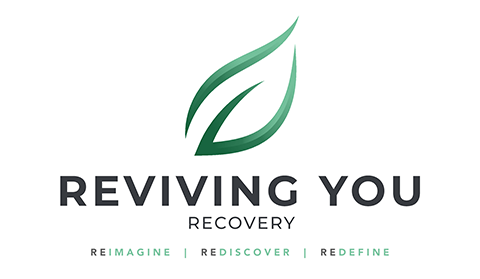
Coping Skills for Substance Abuse
Reviving You Recovery | Menifee, California

The Importance of Coping Skills in Addiction Recovery
Learning how to cope with life’s challenges in healthy, sustainable ways is one of the most important skills you can develop during addiction treatment. Whether you’re just beginning your recovery journey or looking to maintain long-term sobriety, having a toolbox of coping skills for substance abuse can make all the difference.
At Reviving You Recovery, located in the heart of the Temecula Valley in Menifee, California, we understand that life doesn’t stop when treatment begins. Stress, emotions, and responsibilities continue—but with the right support and tools, you can face them without returning to substance use.
This page will help you understand the importance of coping skills in addiction recovery, introduce several powerful strategies, and show you how we integrate skill-building into every phase of care at Reviving You Recovery.
Why Are Coping Skills So Important in Recovery?
Substance abuse is often rooted in an attempt to escape or numb difficult emotions, painful memories, or overwhelming stress. Drugs and alcohol may offer temporary relief—but they ultimately cause deeper harm.
Coping skills are the healthy alternatives that empower you to face life’s challenges head-on without self-destructive behaviors. These tools:
- Help reduce the urge to use substances
- Build confidence and emotional regulation
- Foster healthier relationships and routines
- Provide practical ways to manage cravings, triggers, and relapse risks
Without strong coping skills, recovery can feel overwhelming. That’s why learning and practicing these strategies is a cornerstone of treatment at Reviving You Recovery.
Common Triggers That Lead to Relapse
Before diving into specific coping strategies, it’s helpful to understand what you’re coping with. Triggers are people, places, emotions, or situations that increase the desire to use. Common triggers include:
- Stress at work or home
- Relationship conflict
- Loneliness or isolation
- Boredom or lack of purpose
- Negative emotions like shame, anger, or anxiety
- Environments associated with past substance use
- Major life transitions or traumatic memories
Coping skills are most effective when they are tailored to your personal triggers and lifestyle—which is exactly what we focus on during your treatment at Reviving You Recovery.

Categories of Healthy Coping Skills
There are many types of coping strategies, and the most effective recovery plans include a mix of them. Here are some of the key categories we teach and support in treatment:
1. Emotional Coping Skills
Managing your emotions is essential in preventing relapse and building a fulfilling sober life. Emotional coping skills include
- Journaling: Writing out thoughts and feelings can reduce internal stress and provide insight into patterns and triggers.
- Talking to a therapist or sponsor: Sometimes just being heard makes a big difference.
- Mindfulness and meditation: Learning to sit with your emotions rather than avoid them.
- Naming your emotions: Simply recognizing and labeling what you’re feeling reduces its intensity.
2. Cognitive Coping Skills
These skills help you change the way you think, so you can respond to situations more constructively:
- Cognitive behavioral therapy (CBT): Identifying and challenging distorted or unhelpful thoughts.
- Positive self-talk: Replacing negative inner dialogue with affirmations and encouragement.
- Thought-stopping techniques: Interrupting obsessive or harmful thought patterns before they spiral.
At Reviving You Recovery, we incorporate these tools through therapy and group sessions, both in detox and throughout outpatient programming.
3. Behavioral Coping Skills
Sometimes the best way to get out of your head is to get into action. Behavioral coping skills involve taking steps to influence how you feel through what you do:
- Exercise or movement: Walking, running, yoga, or even a few stretches can boost mood and reduce anxiety.
- Creative expression: Art, music, dance, and crafts help process emotions in a nonverbal way.
- Setting small goals: Accomplishing something each day builds self-efficacy and purpose.
Our treatment center encourages active healing, and the beautiful Temecula Valley surroundings in Menifee make it easy to incorporate outdoor activities into recovery.
4. Interpersonal Coping Skills
Healthy relationships are essential for long-term recovery. These skills help improve communication and foster connection:
- Assertiveness training: Learning to express needs and set boundaries respectfully.
- Conflict resolution: Managing disagreements without escalation or retreat.
- Reaching out for support: Knowing when and how to ask for help from your network.
In group therapy, clients at Reviving You Recovery practice these skills in real-time with the guidance of experienced clinicians.
5. Spiritual and Meaning-Based Coping
Whether rooted in religion, nature, mindfulness, or purpose, spiritual coping helps people find deeper meaning in their recovery:
- Spending time in nature: The peaceful environment of Menifee provides ample opportunity for this.
- Practicing gratitude: Noting what you’re thankful for, even on tough days.
- Connecting to a higher power or purpose: Through 12-step programs, meditation, or personal reflection.
How We Help You Build Coping Skills at Reviving You Recovery
We believe that recovery is a skillset, and we are here to help you master it. From your first day at Reviving You Recovery, we focus on helping you identify what works for you and integrate it into daily life.

Our services include:
- Individual therapy sessions to explore emotional and cognitive coping tools;
- Group therapy where clients share and practice new strategies;
- Relapse prevention planning, identifying triggers and how to respond;
- Holistic therapy options like yoga, mindfulness, and art therapy;
- Life skills coaching to help with routines, employment, and sober socializing;
- Alumni support for continued skill-building after treatment ends.
We tailor every treatment plan to the individual, recognizing that no two recovery journeys are the same.
Building a Routine That Supports Sobriety
Coping skills are most powerful when built into a daily routine. Structure creates safety, predictability, and a sense of accomplishment. We help clients build a schedule that includes:
- Regular meals and sleep
- Time for work, study, or job searching
- Support group meetings or therapy
- Self-care and personal time
- Meaningful activities and sober fun
Establishing these habits during treatment makes it easier to maintain sobriety once you transition back into everyday life.
When Coping Skills Aren’t Enough
It’s important to acknowledge that some days are harder than others, and even the best coping strategies can feel like they’re not working. That’s why a strong support system is so important. If you’re overwhelmed, having a therapist, sponsor, friend, or family member to talk to can provide immediate relief and guidance.
At Reviving You Recovery, you’re never alone. Our team walks beside you throughout your journey, helping you stay grounded, accountable, and inspired—even when challenges arise.
Recovery in the Heart of the Temecula Valley
Located in Menifee, California, our center is nestled in the Temecula Valley, an area known for its rolling hills, horse ranches, and serene natural beauty. The calm, quiet environment helps clients disconnect from the chaos of addiction and focus fully on healing.
Being surrounded by nature provides the perfect backdrop for outdoor therapy, relaxation, and building new routines. Clients often tell us that the peaceful setting helps them feel safe, grounded, and motivated to grow

Whether you stay local in Menifee or return home to another part of Southern California or beyond, we ensure you leave our program with a solid plan and continued access to care.
Recovery in a Healing Environment
Our location in Menifee, CA, in the heart of the Temecula Valley, provides a beautiful and peaceful setting ideal for healing. The surrounding hills, open skies, and quiet atmosphere create a perfect environment for reflection, growth, and grounding.
Being in such a serene place helps clients focus on their recovery, gain perspective, and disconnect from the stressors of daily life that may have contributed to substance use in the past.

Final Thoughts: Coping Skills Are the Foundation of Recovery
Healing from substance abuse is about more than just quitting drugs or alcohol. It’s about learning how to live well without substances—how to manage pain, handle stress, find joy, and build meaningful connections.
At Reviving You Recovery, we’re committed to helping you build a toolbox of coping skills that support your recovery for life. With compassionate guidance, clinical support, and a serene environment, you’ll gain the confidence and clarity to face life’s challenges—sober, strong, and supported.
Ready to learn how to cope without substances?
Contact us today to get started on your journey to lasting recovery.

Hope and love live here. I have failed at every detox before this because of the lack of general care and information (or lack thereof), and instead, I was shown a new perspective here, and I am forever grateful to be recovering ME again. Thank you for giving me another shot at life and love when I didn’t think I had one left.
— PM






